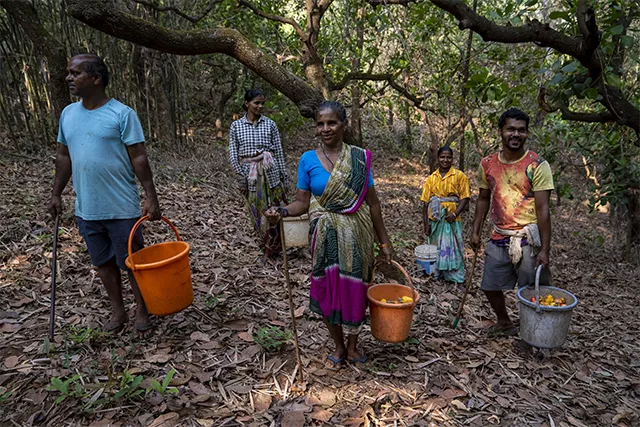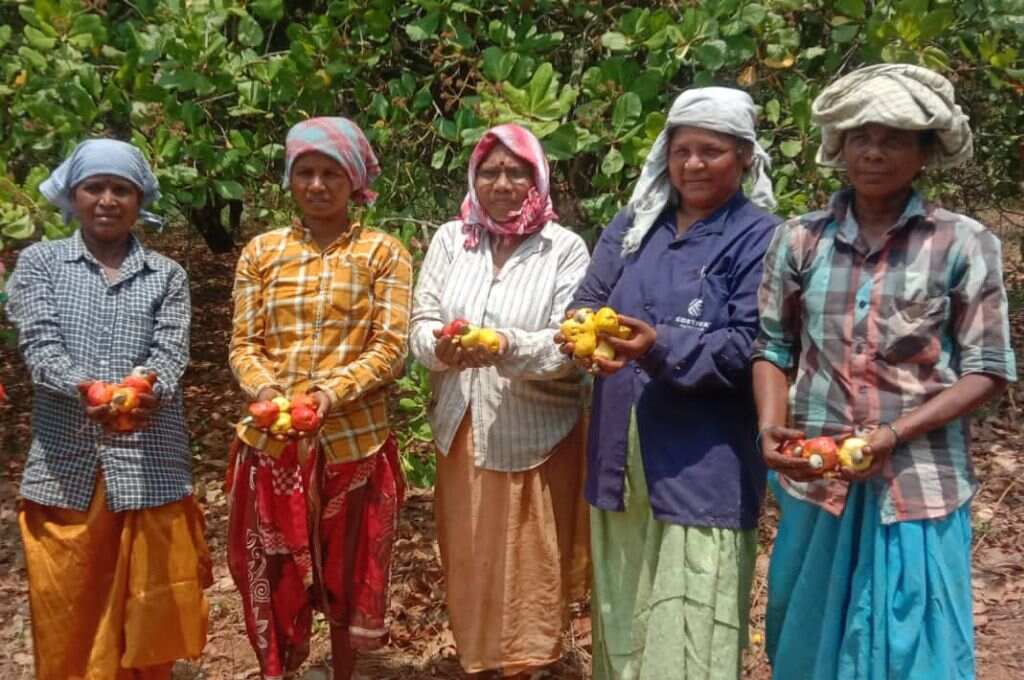
Goa, often celebrated for its sun-kissed beaches and vibrant culture, holds another treasure close to its heart—the cashew nut. From the lush plantations in Goa’s hinterlands to the bustling markets that sell this prized nut, cashew farming is an integral part of the state’s agricultural and cultural identity. But behind every handful of these buttery, golden nuts lies the untold story of the hardworking Goan cashew farmer.
The Beginnings of Cashew Farming in Goa
Cashew farming was introduced to Goa by the Portuguese in the 16th century. Originally planted to prevent soil erosion, the cashew tree thrived in Goa’s laterite-rich soil and warm climate. Over time, it became one of the state’s key cash crops, with both the nut and the cashew apple playing significant roles in Goan life.
For farmers in Goa, cashew farming is more than just a livelihood—it’s a tradition passed down through generations. Families own small or medium-sized plantations where cashew trees grow naturally, covering the rolling hillsides of the Goan countryside.
A Day in the Life of a Cashew Farmer
Cashew farmers closely tie their lives to the seasons, with harvest time—from February to May—being the most crucial and labor-intensive period of the year. Here’s a glimpse into a typical day:
Morning: Tending to the Plantation
The day begins early, with farmers walking through their plantations to inspect the trees. The cashew fruit—comprising the nut and the cashew apple—is collected once it ripens and falls to the ground. Farmers often use long sticks to dislodge any remaining fruits still clinging to the branches.
The work requires agility and attentiveness as cashew plantations are usually spread over hilly terrain, making navigation challenging. Farmers also clear weeds and protect their crops from pests, a constant threat to their yield.
Midday: Sorting and Processing the Harvest
Once the fruits are gathered, the cashew apples are separated from the nuts. The nuts are sun-dried for several days, a process that enhances their shelf life. Cashew apples, on the other hand, are either sold fresh in local markets or used to make feni (a traditional Goan spirit) or vinegar.
This stage involves a family or community effort, with everyone pitching in to ensure the harvest is properly sorted and stored.
Evening: Preparing for Tomorrow
As the sun sets, farmers often sit down to plan the next day’s work or manage other responsibilities such as maintaining tools, repairing fences, or arranging transportation for their products to local markets or processing units.
Challenges Faced by Cashew Farmers
While cashew farming is a source of pride and income, it comes with its share of challenges:
- Unpredictable Weather: Heavy rainfall or prolonged dry spells can significantly affect crop yields.
- Pests and Diseases: Insects like tea mosquitoes or fungal diseases often require constant monitoring and intervention.
- Market Competition: Farmers often struggle with fluctuating prices for raw cashew nuts, with middlemen taking a significant share of the profits.
- Labor Intensity: The work is physically demanding, particularly during harvest season, when long hours under the sun are required.
The Role of Cashew in Goan Culture
Cashew farming extends beyond economic importance in Goa; it’s deeply embedded in its culture. The cashew apple is integral to the production of feni, a spirit that holds cultural and ceremonial significance. Feni distillation is often a community affair, with farmers coming together to process their harvests in traditional pot stills.
Additionally, cashew nuts are a staple in Goan cuisine, used in sweets like kaju mithai, curries, and even as garnishes for festive dishes.
Sustainability and the Future
Many young farmers in Goa are now turning to organic farming methods to reduce dependency on chemical fertilizers and pesticides. There’s also a growing push for value-added products, such as roasted cashews, cashew butter, and innovative beverages made from cashew apples. These initiatives aim to increase profitability while preserving the traditional aspects of cashew farming.
Government and cooperative programs are helping to provide training, subsidies, and support to farmers, ensuring that this age-old practice continues to thrive in a rapidly changing world.
A Legacy Rooted in Hard Work
The life of a Goan cashew farmer is one of dedication, resilience, and an unbreakable bond with the land. Their work not only sustains a vital industry but also keeps alive traditions that are uniquely Goan. The next time you savor a handful of cashew nuts or sip on a glass of feni. Take a moment to appreciate the hard work and heritage behind these gifts from Goa’s fertile soil.
For the Goan cashew farmer, every nut harvested is not just a product but a piece of their history and heart, shared with the world.


